

Severe and complex mental illness
Overview
Facts and figures
4 out of 5 people living with mental illness have a coexisting physical illness.
People with severe mental illnesses are particularly at risk being 6 times more likely to die from cardiovascular disease, 5 times more likely to smoke and 4 times more likely to die from respiratory disease.
For people experiencing psychosis, there is a gap in life expectancy of between 14 and 23 years, compared with the general population.
In 2018, an estimated 22,000 adults (aged 18 to 64 years) in Brisbane North are expected to experience severe levels of mental illness. Approximately 33% of this group will experience a severe mental illness that is persistent in nature, and a further 10% will experience a severe and persistent mental illness, with enduring and disabling symptoms requiring service responses from multiple agencies.
Objectives and actions
Action
Planned completion
Status
11.1.1
Develop an action plan in line with the Equally Well Consensus Statement to address the physical health needs of people with severe and complex mental illness in our region
Planned completion
2023/2024
Status
On hold
Updated
11.1.2
Support the delivery of programs/initiatives in the region that promote physical health (nutrition, diet and physical activity) and wellbeing for people living with severe and complex mental illness
Planned completion
Ongoing
Status
On track
Action
Planned completion
Status
11.2.1
Collaborate with the housing and homeless sector to improve referral pathways and identify systemic gaps to service access for people living with severe and complex mental illness
Planned completion
Ongoing
Status
On track
Updated
11.2.2
Develop an action plan to improve access to safe, secure and affordable housing for people living with severe and complex mental illness
Planned completion
2022/2023
Status
On hold
Updated
Action
Planned completion
Status
11.3.1
Review existing qualitative and quantitative research to identify knowledge and service gaps, and explore the service needs of people experiencing severe and complex mental illness and social and economic inclusion
Planned completion
2022/2023
Status
On hold
Updated
11.3.2
Develop an evidence based action plan to address the social and economic inclusion of people with severe and complex mental illness
Planned completion
2023/2024
Status
On hold
Updated
Action
Planned completion
Status
11.4.1
Identify and promote existing alternatives to hospital Emergency Departments (EDs) for people experiencing severe mental illness who are distressed
Planned completion
Ongoing
Status
On track
11.4.2
Secure funding to support implementation of the Safe Spaces three tiered model in line with the Safe Spaces implementation plan
Planned completion
2022/2023
Status
Completed
Action
Planned completion
Status
11.5.1
Evaluate recommendations implemented from the Discharge and Transition Action Group (DTAG) on improving admissions, hospital stays and discharge planning
Planned completion
Ongoing
Status
On hold
Updated
11.5.2
Design and implement a project that supports clients preparing for discharge in their transition from hospital to community living
Planned completion
Action
Planned completion
Status
11.6.1
Identify and implement a best practice model (trauma informed, recovery orientated and person centred care) to provide a full range of services across the continuum of care
Planned completion
Ongoing
Status
On hold
Updated
Governance
The Collaboration in Mind Group was born out of the North Brisbane Partners in Recovery (PiR) Initiative, as a mechanism to allow stakeholders with a vested interest in improving outcomes for people with severe and complex mental illness to meet and progress issues collaboratively. The Group expanded its scope beyond the PiR Initiative, and continues to meet since the transition of the PiR Initiative into the National Disability Insurance Scheme (NDIS). In 2018, the Collaboration in Mind Group was reviewed, with the Group supporting the transition to a new structure. The smaller, Collaboration in Mind Core Group was formed, and has direct oversight over implementation of Chapter Eleven – Severe and Complex Mental Illness within Planning for Wellbeing.
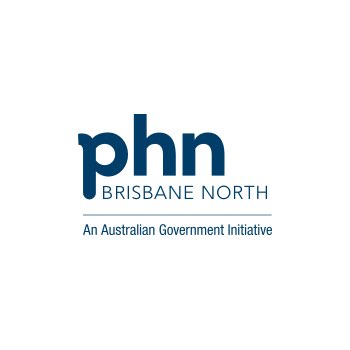

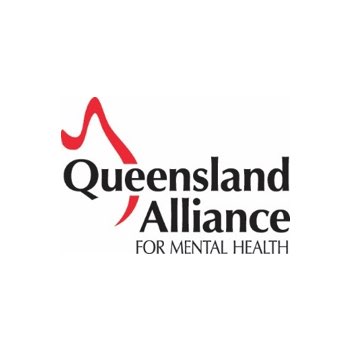
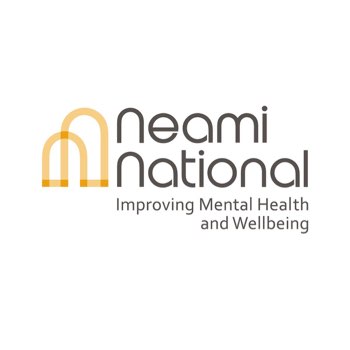
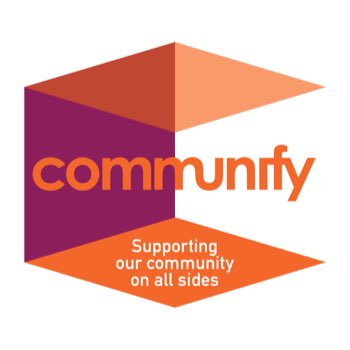
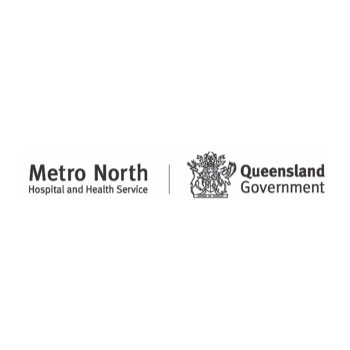
Membership
Amanda Trunley
Regional Manager
STRIDE
Annette Ormiston
Lived Experience Representative
Danielle Alchin
Team Leader - Metro North Mental Health Resource Team
Metro North Mental Health Service
Karen Dare
CEO
Communify
Karen Thomas
QLD State Manager
Neami
Naomi Laauli
Manager, Mental Health Reform
Brisbane North PHN
Richelle Spence
Lived Experience Representative
Sarah Childs
Director, Engagement and Partnerships
Queensland Alliance for Mental Health
Thea Prasad
Program Development Officer
Brisbane North PHN
Achievements
Planning for Wellbeing recognises that effective responses to the needs of people experiencing severe and complex mental illness often involve multiple agencies – and that the range of providers sit across multiple sectors. These include clinical services delivered by the HHS, primary care services delivered by GPs and private allied health professionals in the community, as well as both clinical and psychosocial services delivered by non-Government Organisations (NGOs) funded by both Queensland Health and the PHN. The introduction of the National Disability Insurance Scheme (NDIS) adds further complexity to this mix of services, particularly for those people experiencing psychosocial disability as a result of their mental illness.
The shared objectives targeting severe and complex mental illness acknowledge this complexity, and seek to address issues of integration between different parts of the system.
A summary of the key achievements against the seven shared objectives is included below.
Summary of Achievements
The actions to progress this objective are ongoing. Collaboration in Mind (CiM), the partnership group working to improve outcomes for people with severe mental illness, has collated relevant research and frameworks to guide this work, including the Equally Well Consensus Statement [1].
Various awareness-raising activities to promote the value of My Health Record [2] in improving the physical health of people with severe mental illness have occurred – these included activities to target both health practitioners, as well as consumers and carers.
[1] https://www.equallywell.org.au/
[2] https://www.myhealthrecord.gov.au/
The housing and homelessness sector in the region is well-established, and work to connect the NDIS into these networks has been successful. Whilst still relatively early-days, this will facilitate broader awareness of the ongoing systemic barriers for people with mental illness in accessing safe and sustainable housing.
CiM convened and NDIS Info Exchange in November 2018 for local mental health services to learn about NDIS transition challenges and how to overcome them. Key topics included organisational change management strategies, workforce development, sector capacity building, and the role of the then new Local Area Coordinators.
A Working Group was developed via expression of interest from NDIS Info Exchange attendees that undertook mapping of transition across the sector including identifying gaps and issues.
This work is now being progressed under the National Psychosocial Support Transition Program and the Qld Alliance for Mental Health’s Qld Transition network.
Actions to achieve this objective include reviewing relevant research regarding social and economic inclusion for people with severe and complex mental illness, and developing an action plan to address the relevant needs in the region. This work is scheduled for 2020 onwards.
CiM established a Safe Spaces working group in 2017 to further the work undertaken by an Safe Spaces project. A collaboration from this group successfully tendered for funding to run a safe spaces pilot at two sites in 2017/2018. A safety planning tool was trialed and future Federal funding for safe spaces in North Brisbane secured. A model for a network of safe spaces within a three-tiered model has been developed. CiM are currently advocating for the earlier release of Federal funding to roll-out the safe spaces in the region, which is currently scheduled for a 2022 start.
Metro North HHS Complex Care Coordinators and lead staff from mental health NGOs across the region developed and implemented Hospital In-reach Kiosks at the three hospitals across Brisbane North. The kiosks served multiple purposes; to connect patients with NGO services in hospital prior to discharge; to support patients to gain skills for community living while in hospital by offering social activities and connection and; to assist with referral pathways to other services such as housing, Centrelink, and NDIS supports.
The kiosks also served to build capacity and support between Hospital and NGO staff to assist patients to transition smoothly from hospital to community. The kiosks continue on a regular basis at each hospital site.
A Borderline Personality Disorder (BPD) Working Group was established to develop a best practice model of care in the Brisbane North Region. The working group had the following objectives:
- Investigate and develop a model for a specialist BPD centre in Brisbane
- Integrate current systems and existing services to address the specific needs of people with BPD
- Improve accessibility of treatment for people with BPD
- Ensure training and support for workforce to deliver best practice care to people with BPD.
Concurrently, the Australian BPD Foundation identified its intention to establish a Qld Branch of the BPD Foundation. Members of the working group attended establishment meetings and it was identified that the first three objectives would best be progressed strategically by the newly forming Qld Branch of the BPD Foundation.
In addition, a Brisbane North BPD Mental Health Professionals Network was established to achieve the fourth objective.
Success stories
Establishing a safe spaces model for North Brisbane
Objective 11.5: Establish alternatives to hospital EDs for people experiencing severe and complex mental illness who are distressed…
Connecting people with care before leaving hospital
Objective 11.6: Improve the experience of people transitioning between hospital and the community Actions 11.6.2 & 11.6.3:…
Hospital to Home – Expansion of psychosocial supports for people leaving hospital
Objective 11.6: Improve the experience of people transitioning between hospital and the community Action 11.6.2: Connect…

